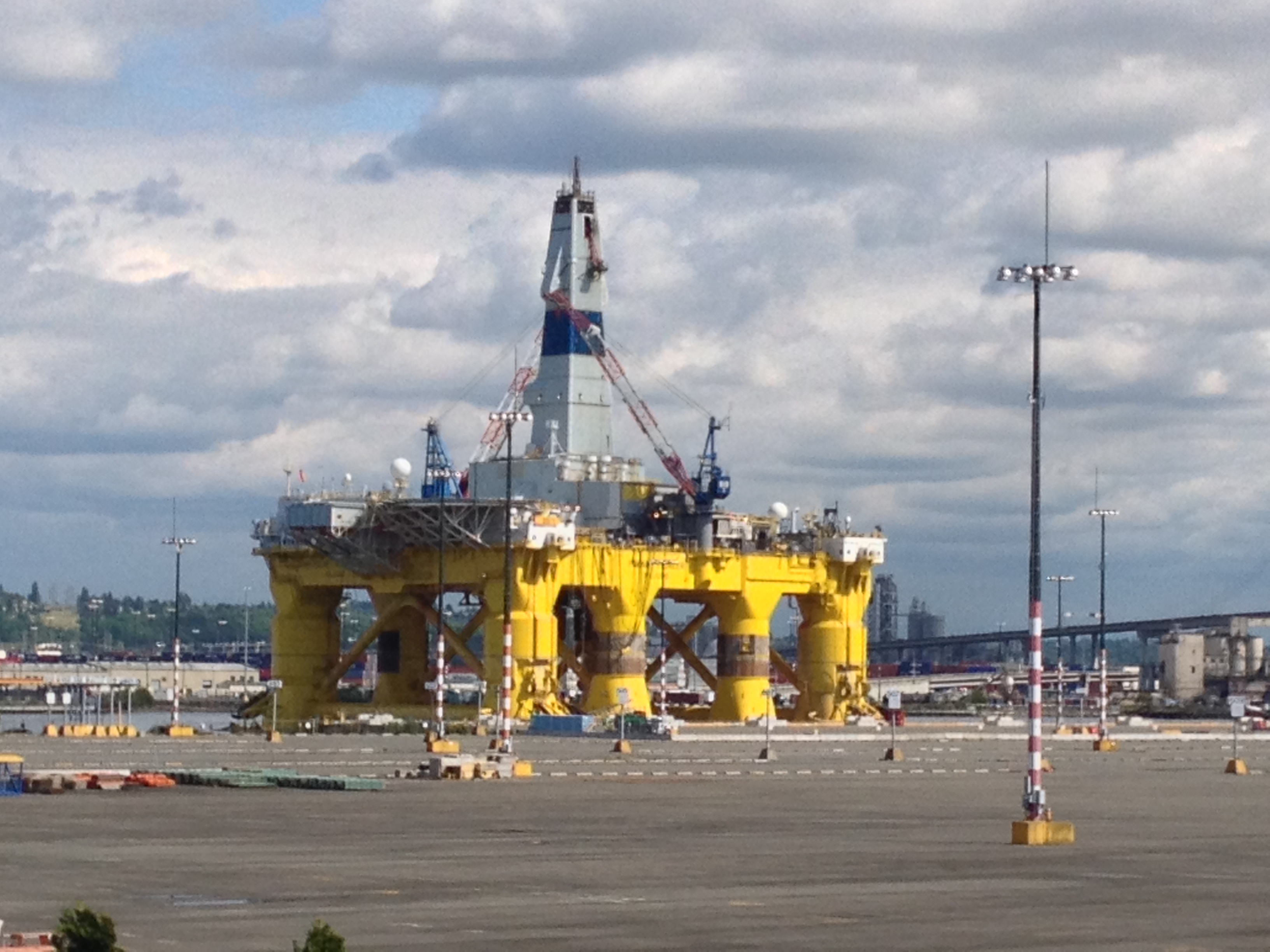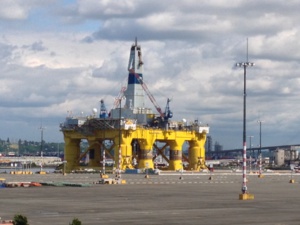Oil majors gave up the rights to drill in an area of 2.2 million acres (about 11.3 thousand sq. km.). This is almost 80% of all licenses purchased at US government’s auction in 2008.
Oil companies then have spent more than $ 2.6 billion on getting the rights to drill in the territory of 2.8 million acres in the Chukchi Sea. Previously, they had acquired the rights to drilling in the Beaufort Sea.
The backtrack was triggered primarily by lower oil prices. As a result, the leading oil producers have to reduce costs of exploration, freeze current projects and postponing new. Shell and ConocoPhillips issued a waiver by May 1, the date of the next multi-million dollar payment to the US government for land lease in the Chukchi Sea, just north of the coast of Alaska.
"This move is consistent with the decision taken earlier to reject development of offshore fields in Alaska in the foreseeable future, - said Shell’s representative Curtis Smith to Bloomberg. - It also reflects high cost of exploration in areas off the northern coast of Alaska, as well as compliance with the standards enhanced by the supervisors."
April 26, ConocoPhillips waived its right to work in the 61 area in the Chukchi Sea, said the company’s spokeswoman Christina Kuhl.
Statoil waived right to work at 16 sites in the Chukchi Sea. Last November, the company gave up its rights to direct equity participation at 50 sites in the US Arctic shelf, referring to the fact that these assets are "lost their appeal."
Canadian oil and gas company Iona Energy Inc. refused the right to land in the Chukchi Sea on March 31. Italian Eni SpA also waived its right to four sites in the Chukchi Sea on April 28.
Oil reserves in the American part of the Arctic shelf are estimated at 27 billion barrels; gas – at 132 trillion cubic meters.
One of the reasons for the companies’ weak results are their high running costs. The companies have frozen salaries, reduced personnel and postponed a number of projects. Yet, it is still not enough to bring costs in line with the fallen oil prices, says Barclays analyst Lydia Rainforth.
In 2016, the companies have planned to further reduce costs. BP wants to cut spending by $ 3.4 billion (2017 costs will be reduced to $ 7 billion compared to 2014). Shell’s expenses decreased by $ 4 billion in 2015. In 2016, the company plans to cut costs by $ 3 billion. In the short term, however, the measures will unlikely compensate the loss of income from sagging oil. The cost of a barrel production is still two to three times higher than in the previous period of low oil prices in the first half of the 2000s.
source: bloomberg.com
Oil companies then have spent more than $ 2.6 billion on getting the rights to drill in the territory of 2.8 million acres in the Chukchi Sea. Previously, they had acquired the rights to drilling in the Beaufort Sea.
The backtrack was triggered primarily by lower oil prices. As a result, the leading oil producers have to reduce costs of exploration, freeze current projects and postponing new. Shell and ConocoPhillips issued a waiver by May 1, the date of the next multi-million dollar payment to the US government for land lease in the Chukchi Sea, just north of the coast of Alaska.
"This move is consistent with the decision taken earlier to reject development of offshore fields in Alaska in the foreseeable future, - said Shell’s representative Curtis Smith to Bloomberg. - It also reflects high cost of exploration in areas off the northern coast of Alaska, as well as compliance with the standards enhanced by the supervisors."
April 26, ConocoPhillips waived its right to work in the 61 area in the Chukchi Sea, said the company’s spokeswoman Christina Kuhl.
Statoil waived right to work at 16 sites in the Chukchi Sea. Last November, the company gave up its rights to direct equity participation at 50 sites in the US Arctic shelf, referring to the fact that these assets are "lost their appeal."
Canadian oil and gas company Iona Energy Inc. refused the right to land in the Chukchi Sea on March 31. Italian Eni SpA also waived its right to four sites in the Chukchi Sea on April 28.
Oil reserves in the American part of the Arctic shelf are estimated at 27 billion barrels; gas – at 132 trillion cubic meters.
One of the reasons for the companies’ weak results are their high running costs. The companies have frozen salaries, reduced personnel and postponed a number of projects. Yet, it is still not enough to bring costs in line with the fallen oil prices, says Barclays analyst Lydia Rainforth.
In 2016, the companies have planned to further reduce costs. BP wants to cut spending by $ 3.4 billion (2017 costs will be reduced to $ 7 billion compared to 2014). Shell’s expenses decreased by $ 4 billion in 2015. In 2016, the company plans to cut costs by $ 3 billion. In the short term, however, the measures will unlikely compensate the loss of income from sagging oil. The cost of a barrel production is still two to three times higher than in the previous period of low oil prices in the first half of the 2000s.
source: bloomberg.com






